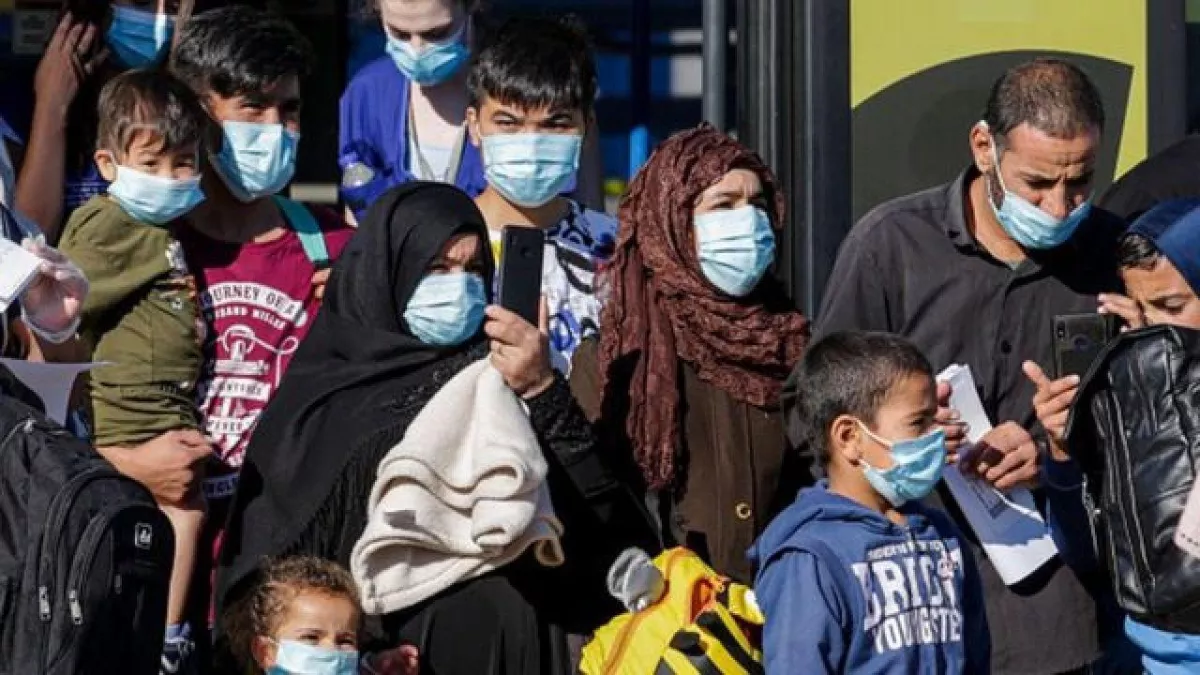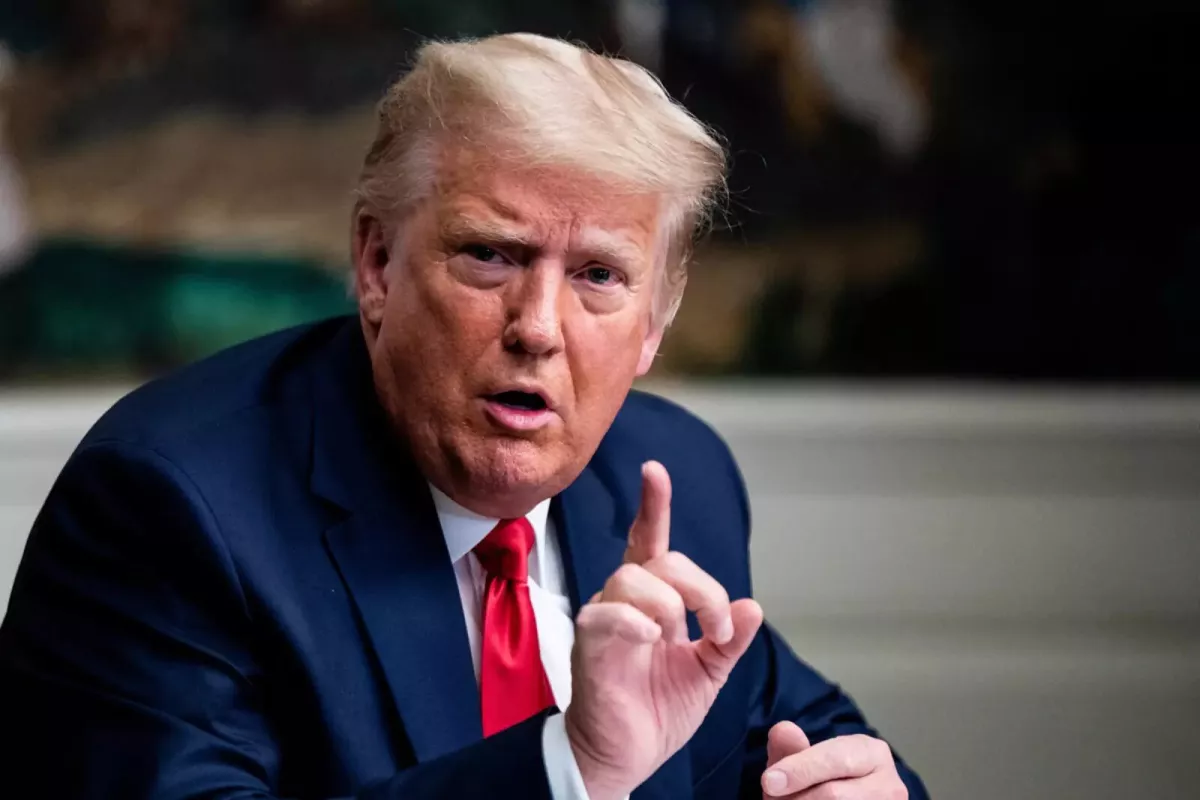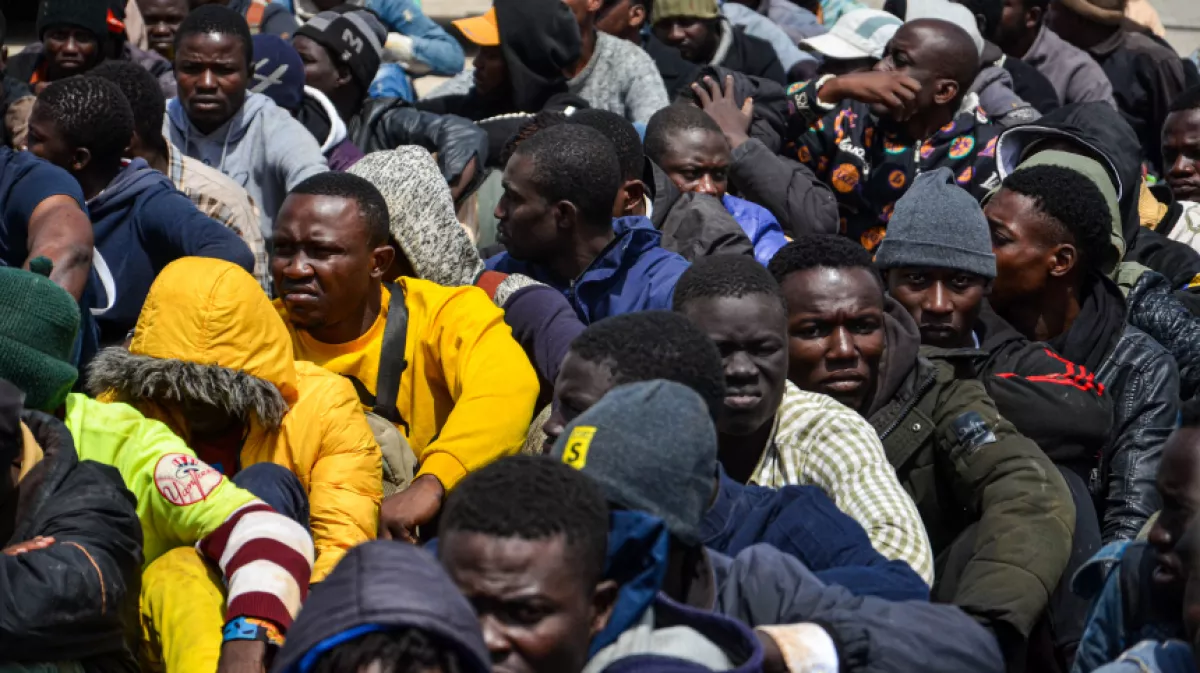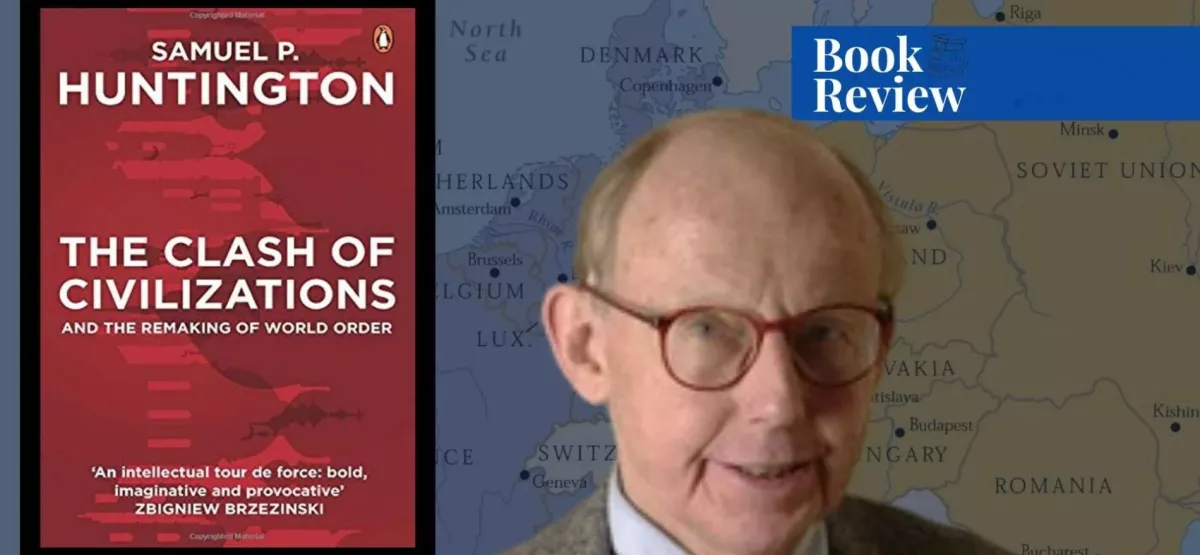Migration crisis: A path to the clash of civilizations? Samuel Huntington’s theory reborn
War and migration are among the top stories in the global information flow today. It seems that, in the grand puzzle of current events, they practically embody the theory of the clash of civilizations described three decades ago.
If one disregards the well-known advice of Professor Preobrazhensky and reads a large number of global newspapers before lunch, followed by categorizing their main storylines over a cup of afternoon coffee, two recurring topics will emerge at the top: wars and migration. It is hard to imagine any country in the world where leading media do not discuss or report on these issues daily. Even if they do not directly concern the lives and politics of specific countries, they influence them indirectly: through the impact they have on government decisions and public sentiments in many global and regional states.
In general, the topics of war and migration have become familiar in the information stream. Such is the nature of human emotions and psychology that we are able to adapt fairly quickly to even the most frightening circumstances. And if this fear does not directly affect us, constant media reminders of it dull our perception and disconnect us from the details. As a result, even when certain topics dominate the media agenda, they are rarely perceived as part of a cohesive whole, as elements of a larger puzzle.

At the same time, if we reflect on the ongoing military and migration narratives that are resonating from all sides, this puzzle could very well lead to the following question: could it be that right before our eyes, the famous theory of the clash of civilizations is being realized in practice as the main driving force behind international processes in the 21st century? This theory, as is well known, was proposed three decades ago by American professor Samuel Huntington. His 1996 book The Clash of Civilizations and the Remaking of World Order became a bestseller. However, for a long time, it was perceived simply as an interesting academic work, gathering dust on library shelves while more popular ideas about the "end of history" enjoyed greater favour during the era of the "unipolar moment." In other words, during the author's lifetime, it did not become the trendsetter of the world's intellectual mainstream. So, could the growing thematic concentration of war and migration in the media today indicate that the theory of the clash of civilizations is finally turning into practice? Perhaps Professor Huntington was simply ahead of his time by 30 years?
Migration dramas on every corner
Let’s set wars aside for now. Unfortunately, we already have a clear understanding of them. At least, we know the destructive scale of the existing and potentially expanding chain of global proxy conflicts. For now, let’s take a look at some recent headlines related to migration issues. Here are just a few news stories from the last few days.
Donald Trump, who began his new presidential term with great energy, has immediately taken on illegal immigration in the United States, as he promised during his campaign. One after another, he is making decisions to close off opportunities for incoming migrants and to deport those already in the country en masse. For example, with his executive order, he is attempting to abolish what seemed like a cornerstone of American tradition – jus soli (right of the soil). This is the right to American citizenship by virtue of being born on U.S. soil, regardless of the parents' citizenship.

The Trump administration is also closely monitoring specific countries from which migrants are arriving in the U.S. Washington has issued an ultimatum to Colombia, demanding that it accept flights with its own citizens being forcibly returned to their homeland. When Colombian authorities refuse to accept the flights with migrants on board, the U.S. president wastes no time in promising to impose restrictive tariffs on Colombian exports. Bogotá backs down, agreeing to Trump's terms. The new American administration is also reminding Canada and Mexico that a large number of migrants are systematically crossing into the U.S. from their territories. Meanwhile, the Pentagon and the U.S. Department of Homeland Security have been tasked with preparing spaces at the American base in Guantanamo, Cuba, for 30,000 illegal immigrants whom the government believes pose the greatest threat.
Migration news is equally active from Europe. In most European countries, this issue firmly remains at the top of the public-political priorities and is increasingly shaping the outcomes of electoral campaigns. As a result, it is receiving central attention in places where electoral campaigns are in full swing, such as in Germany. It is also a focal point in countries where the results of already held elections have sent a clear signal to newly formed governments that migration policy needs to change. For example, in the Netherlands, Italy, Sweden, and the United Kingdom.
The Italian government, despite ongoing legal challenges, is strongly pushing the idea of sending illegal migrants to special temporary detention centres in Albania. The Labour government in the UK has inherited similar ideas from its conservative predecessors and is now considering their feasibility, while simultaneously tightening the rules for handling asylum seekers.
European news outlets routinely report on the latest attempts by migrants to enter the EU via both sea and land routes. These reports are often accompanied by investigative journalism covering international criminal networks involved in human trafficking. The flow of information regarding migration issues at the Belarus-EU border, particularly along its Belarusian-Polish section, remains unrelenting.
Political impact
Beyond the informational and emotional undertones behind these headlines, there are clear political consequences that inevitably penetrate various spheres of life in different corners of the globe. The most evident effects are currently felt in Western countries, which have long been the primary destinations for migration flows. However, indirectly and in the long term, these issues are also having a significant impact on the countries and regions from which the majority of migrants originate.
In Western domestic political discussions on migration, the issue is often closely intertwined with concerns about deteriorating economic conditions, crime, terrorism, and cultural incompatibility. In some cases, this is an objective connection, while in others, political opportunism takes advantage of the murky waters. Tension, in many cases, manifests itself publicly and on a large scale: through demonstrations, protests, and even violent clashes. Naturally, this leads to a sharp rise in the popularity of right-wing and far-right movements.
In non-Western countries, migration issues are also increasingly becoming part of the domestic political agenda. They will become more prominent and give electoral advantages to local radical forces. First, due to the mass departure and now mass return of their own citizens, which impacts local politics, economics, and society. Second, due to the growing lines of tension between the countries migrants are leaving and those they are trying to enter. Hostile Western rhetoric and policies towards migrants will provoke reciprocal feelings of rejection, fueled by a sense of injustice and resentment. This will translate into political debates and agendas that are unlikely to have a positive impact on intergovernmental relations.

In other words, the domestic political turbulence surrounding migration issues, both in the West and beyond, will likely lead to an increase in international tensions, generating new conflict scenarios. However, in some cases, it can be expected that states will try to find common ground and deepen cooperation in response to the challenges posed by illegal migration. For example, cooperation in the form of establishing temporary detention centres for migrants, who are deliberately transported from destination countries to transit countries. Such projects are already being pursued by Italy and the UK. In recent years, EU officials have been actively reaching out to countries in Asia and Africa with similar proposals.
An interesting example in this context is the recent case of how EU countries have suddenly warmed to Syria and its new government, despite having previously labelled its representatives as terrorists. The source of this newfound affection is clear and natural, considering the pressure from migration issues. As a result, there is a growing tendency to lift sanctions that have been imposed on Damascus for years. This could also become an example where migration and war foster greater cooperation. However, unfortunately, in the broader picture of current events, it is hard to imagine that these mostly isolated instances of cooperation could reverse the dominant trend of increasing tensions due to migration problems.
Clash of civilizations in action?
It seems as though there is a global rethinking of the boundaries of reality, boundaries that, for decades, seemed like an unquestionable and foundational norm of human life in the 21st century. It's clear that all of this is leading to profound changes in the domestic and international issues previously mentioned. It's also evident that, in the relatively near future, certain manifestations of globalization, various areas of international law, mainstream political agendas, and culture could take on a radically new form.
But against the backdrop of everything happening with migration and its proximity to war-related topics, it seems there are increasing reasons to ask the question: could these events also be a reflection of the long historical trajectory toward a clash of civilizations, as Samuel Huntington wrote about nearly 30 years ago?

It is clear that the grounds for a positive answer to this question are also growing. The significance of intercultural and inter-civilizational differences inherently increases when conflicts in international relations today are primarily not ideologically driven, as they were during the Cold War. The additional factor of the migration crisis only reinforces the civilizational dimension, making it almost inevitable.
However, just like three decades ago, when Samuel Huntington's article in Foreign Affairs and later his book raised the question of the clash of civilizations as the main mechanism of global processes, providing a definitive answer is still difficult. It is even harder to be certain about the linearity of what’s unfolding and the intertwining of various factors. Nevertheless, overall, it is undeniable that today we are indeed moving closer to the reality of a significant and prolonged clash of civilizations. Migration challenges and wars are increasingly pushing humanity in that direction.
At the same time, there are significant attempts for history to take different directions. For instance, there is a kind of return, a reincarnation of the nation-state as the main actor and source of legitimacy in global affairs. It is no coincidence that some current conflicts are tearing apart intra-civilizational ties, establishing borders within groups that share the same religion and cultural identity. Moreover, it is yet to be determined which inter-civilizational divides will be stimulated by the ongoing weakening of the Western civilization’s position. It remains to be seen how substantial (or not) the decline of the West will be, and to what extent other civilizations will rise in global processes.








